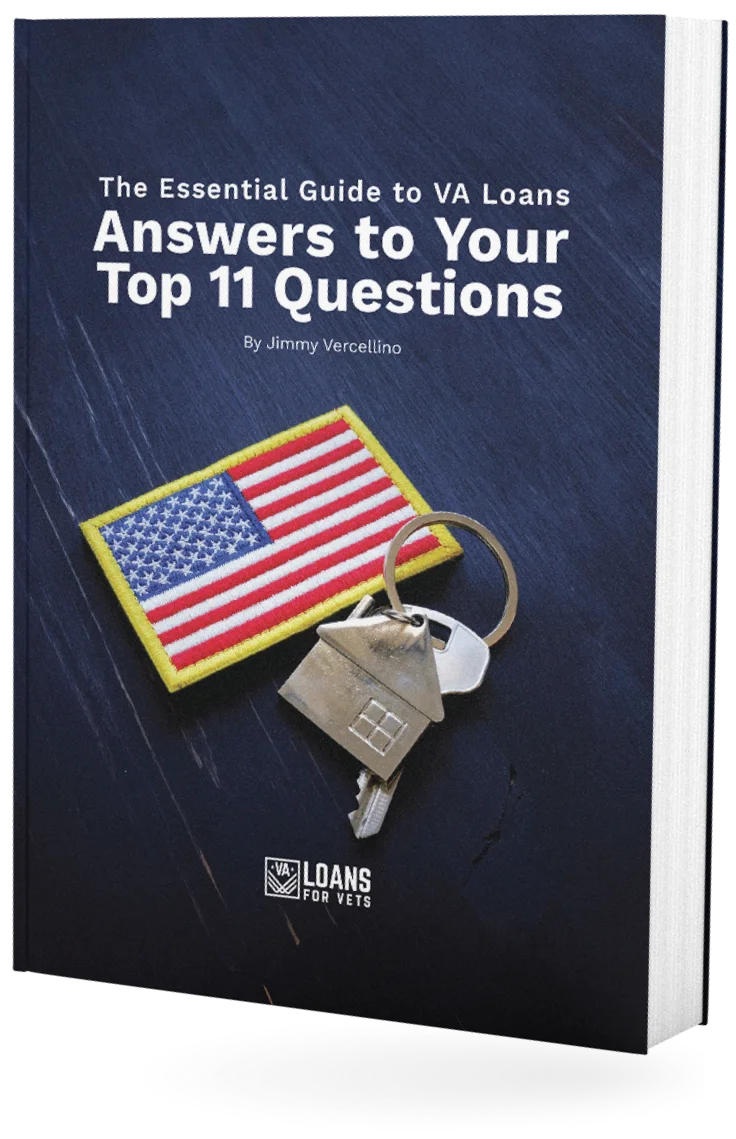The VA Loan is a fantastic finance option for you to purchase the dream home your family has always wanted. Veterans Affairs honors your homeland sacrifice by offering VA Loans with $0 down, no mortgage insurance, and competitive interest rates. Your kids will have plenty of living room space for wrestling matches and you can raise them in a new, comfortable home.
You may be in the middle of the VA Home Loan journey and be caught off guard when your lender mentions closing costs you will have to pay. Or you could be like many vets and military personnel that are afraid to begin the VA Loan process since they never considered closing costs. In either case, we are glad to inform you of the different closing costs and fees you pay with a VA Loan so you can move forward toward homeownership.
VA Loan-Related Closing Costs
“Closing costs” can rub you the wrong way when you think of them as additional costs your VA-approved lender imposes. They are nothing like The Tea Act of 1773 and nothing you have to rebel against. In fact, Veterans Affairs imposes these costs that your lender must follow.
VA Loan closing costs are typically 1% to 3 % of your loan amount on a larger loan and 3% to 5% of your loan amount on a smaller loan.
Closing costs also encompass a variety of fees, such as fees on the VA Loan, your home hunt, real estate process, and title charges. It is not a lump sum cost that you pay: there are several financial pawns and pieces you and your lender will move across the board.
VA Funding Fee
The VA Funding Fees is the first closing cost you will pay whenever you take out a VA Loan. It is a one-time payment the government requires and circulates back into the VA Loan Program. Then, future vets and active-duty military families like yours can receive $0 down on their home loans. Also, your VA Funding Fee will lower the taxes of US taxpayers that helped support you to obtain a VA Loan.
Your VA Funding Fee is specific to your VA Loan costs since you pay 2.3% of the total amount you borrowed. However, if you have used the VA Loan before, the percentage will increase to 3.6% so first-time families will have priority to obtaining homeownership. You can reduce your VA Funding Fee by putting down 5% of the mortgage payment at closing if you have the ability to do so.
Veterans Affairs will ask for a VA Funding Fee regardless if you are buying, building, remodeling, repairing, or refinancing.
Origination charge
Your VA-Approved Lender does a lot of work on your behalf for establishing a VA Home Loan, especially with origination, underwriting, and processing fees. Some charge you a 1% flat fee on your loan while others consider specific fees for each part they are doing. No lender can charge you more than 1% of your total VA Loan for origination. So please remember to double-check your closing costs if you notice that your origination fee is higher than usual.
Appraisal Fee
A home appraisal is a necessary closing cost you pay with or without a VA Home Loan for purchasing any home. Veterans Affairs will recommend an appraiser to work with that usually charges between $300-$500.
It is a necessary closing cost since VA Home Appraisals ensure the home you want to buy is at the same value or less than the value the homeowner is asking for. They protect the lender and VA from going under and being able to help other families from buying their first or vacation homes.
Also, your VA Home Appraisal will test your home’s safety for architecture, electrical, and other issues that might be present. The thrill of buying your dream can turn into a disaster if your home has fundamental issues that you and the owner did not take care of.
Credit Report
Your VA-Approved Lender will charge you to hard pull your credit score and for them to review it while looking at your VA Loan eligibility. It is rare they will charge more than $50 and there are other lenders you work with that will not make you pay for this service.
Title Charges
A wise VA Loan lender will ask you to purchase their title insurance for your family’s protection during the VA Loan Journey. You can be shocked to find liens, legal defects, ad other title problems after closing on what you believed to be the perfect home. There is also the option to purchase the owner’s title insurance to have extra insurance that you will be covered if anything goes wrong with your new home’s title.
Both of these include an insurance premium you need to pay so the polices can protect you and your family.
Inspection Fees
Someone will always have to pay home inspection fees, but some states require the seller to cough up the cash rather than you. The inspection generally checks for septic and termite issues in your home before you move your family and possessions inside. You should check with your VA Lender to see whether you are a part of the nine states that prevent you from paying so you can relax.
Discount Points
If you are in a safe and secure financial place, you have the option to purchase discount points, which increase your closing costs. However, these will decrease your mortgage rate and save you thousands with your lender in the long run. A single discount point equals 1% of the total loan amount and the more you buy the lower your interest rate.
A lender will call this option a permanent buydown and, although it’s not something all military families and vets utilize, it can make homeownership less stressful if you save enough money for it.
We Calculate Your VA Loan Closing Costs
Our VA Loan advisors can walk you through your VA Loan and estimate your closing costs beforehand so you are prepared. Then, we can help create a long-term financial plan to pay them and your loan off in a stress-free way.
We make it our mission to partner with you every step of the VA Loan Journey and help you enjoy buying your dream home rather than your finances ruining the moment.
Our team would be honored to tell you more about VA Loans, let you know if you are eligible, or advise you on your current VA Loan. Call our office at (602).908.5849 to speak with our advisors so we can serve you from the start to the closing date.



